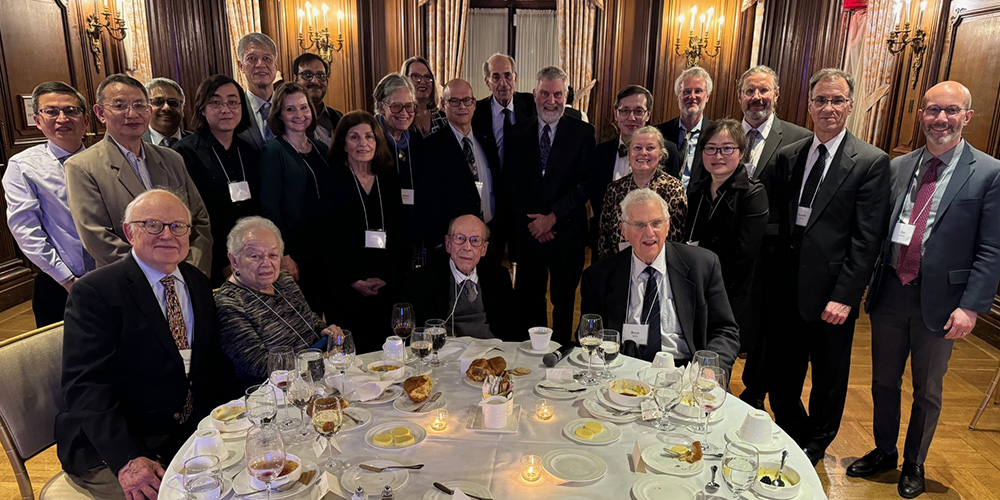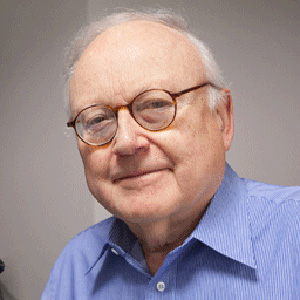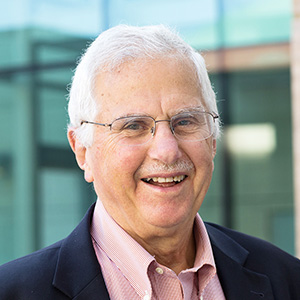Event honors Gary Felsenfeld
A celebration honoring Gary Felsenfeld, a pioneer in the study of nucleic acid structure and chromatin, brought together more than 25 of his former National Institutes of Health lab members recently to offer reminiscences. Inspired by our decades-long admiration of Felsenfeld, the authors organized this event in Washington, D.C.

Felsenfeld’s career spanned three eras of biophysical chemistry and molecular biology. He was the first, with David Davies and Alex Rich, to demonstrate the existence of three-stranded RNA and (independently with Stuart Orkin) identified GATA1, an early discovery of an erythroid gene regulatory factor. In the 1970s, he made a major discovery on the structure of chromatin and later defined key regulatory elements of gene expression, including “insulator” elements and the transcription factor CTCF.
A member of the American Society for Biochemistry and Molecular Biology for more than 60 years who served on the Journal of Biological Chemistry editorial board in the 1960s, Felsenfeld has received many honors in his career but this was a very personal one, as we intended and as he described it afterwards.
During the evening, Felsenfeld shared memories of some of his mentors, including protein scientist John Edsall at Harvard, where Felsenfeld was an undergraduate, and two-time Nobel Prize winner, biochemist and peace activist Linus Pauling at the California Institute of Technology, where Felsenfeld earned his Ph.D. — an enriching historical connection for most of the guests who knew these scientists by name only.
Felsenfeld, soon to be 95, spent almost his entire career at the National Institutes of Health, where he served as the Molecular Biology Section chief in the National Institute of Diabetes and Digestive and Kidney Diseases and is now an NIH distinguished investigator and scientist emeritus.
Enjoy reading ASBMB Today?
Become a member to receive the print edition four times a year and the digital edition monthly.
Learn moreGet the latest from ASBMB Today
Enter your email address, and we’ll send you a weekly email with recent articles, interviews and more.
Latest in People
People highlights or most popular articles

Simcox wins SACNAS mentorship award
She was recognized for her sustained excellence in mentorship and was honored at SACNAS’ 2025 National Conference.

From humble beginnings to unlocking lysosomal secrets
Monther Abu–Remaileh will receive the ASBMB’s 2026 Walter A. Shaw Young Investigator Award in Lipid Research at the ASBMB Annual Meeting, March 7-10 in Washington, D.C.

Chemistry meets biology to thwart parasites
Margaret Phillips will receive the Alice and C. C. Wang Award in Molecular Parasitology at the ASBMB Annual Meeting, March 7-10 in Washington, D.C.

ASBMB announces 2026 JBC/Tabor awardees
The seven awardees are first authors of outstanding papers published in 2025 in the Journal of Biological Chemistry.

Decoding how bacteria flip host’s molecular switches
Kim Orth will receive the Earl and Thressa Stadtman Distinguished Scientists Award at the ASBMB Annual Meeting, March 7–10, just outside of Washington, D.C.

Thiam elected to EMBO
He was recognized during the EMBO Members’ Meeting in Heidelberg, Germany, in October.


